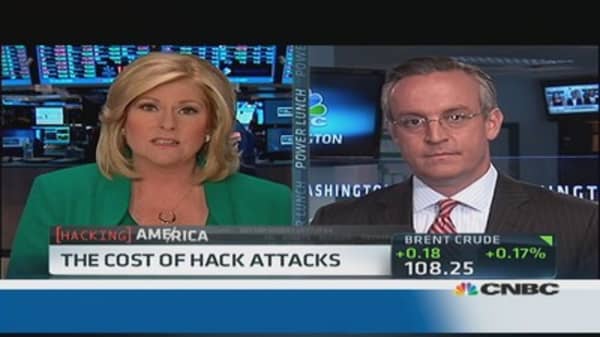Quick—how much money does cybercrime cost the U.S. economy every year? Don't know? Neither does anyone else. Like other illegal activity, cybercrime is very hard to count because the crime mostly happens in secret. Think of the wide-ranging estimates for the drug trade, for example, or even insider trading.
But the folks at the Center for Strategic and International Studies, bankrolled by the computer security firm McAfee, have taken a new approach to tallying up the cybercrime damage, and they've generated an interesting number. It's interesting because the new method results in a total estimate for cybercrime that's actually lower than some others—which you wouldn't expect from a study financed by a company that has a vested interest in pointing out just how much cybercrime there is.
The new study, released Monday, "posits"—or offers an educated guess—that cybercrime creates a $100 billion annual loss to the U.S. economy, and as many as 508,000 lost jobs as a result.
(Read more: US charges eight in $45 million cybercrime scheme)





